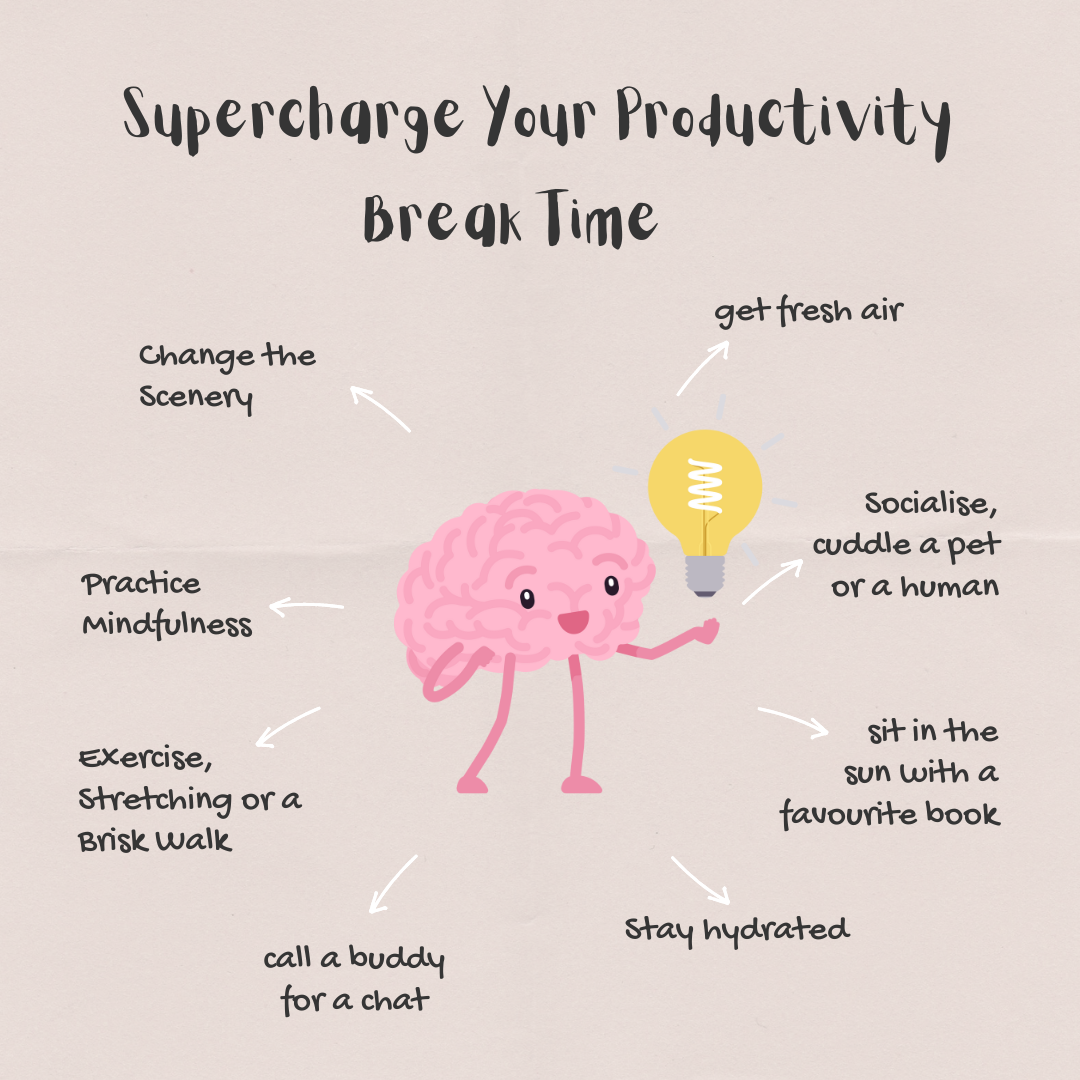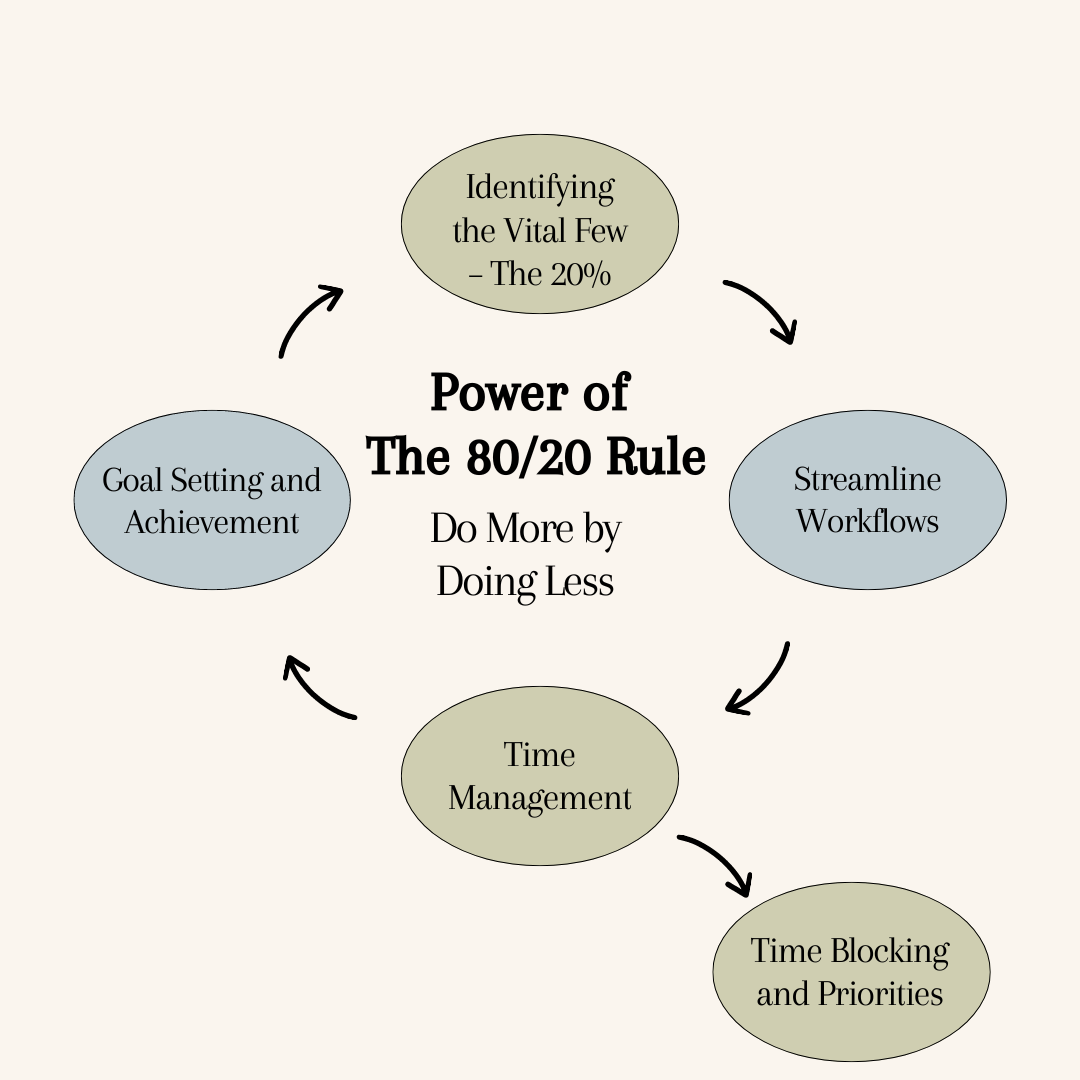In today’s fast-paced world, taking breaks may seem counterproductive with tight deadlines and ambitious goals. We often equate long hours with success, neglecting the importance of rest and rejuvenation. Research shows that regular breaks are crucial for boosting productivity, creativity, performance and overall well-being. Short pauses during work help refresh your mind, prevent burnout, and improve focus, ultimately enhancing performance. So, rather than hindering progress, breaks are essential for sustaining peak efficiency and achieving your best work.
How breaks improve your productivity?
- Improved Focus: Working non-stop causes mental fatigue, reducing your ability to concentrate. Short breaks give your brain a chance to rest, helping to restore focus and clarity. After a brief pause, you’re likely to return to your tasks with improved concentration, allowing for more efficient and effective work.
- Enhanced Creativity: Taking a break from a problem can provide a new perspective. When you step away, your subconscious continues to process information, often leading to creative solutions and innovative ideas that might not surface during continuous work.
- Reduced Stress: Ongoing pressure without relief can lead to burnout and elevated stress levels. Breaks offer a mental and physical break from work, helping to lower stress and prevent exhaustion. This respite is crucial for maintaining long-term well-being and avoiding burnout.
- Increased Energy Levels: Engaging in light activity during breaks can revitalize your energy. Short bursts of movement help counteract fatigue, boosting overall energy levels and making you feel more alert and motivated.
- Better Mood: Taking breaks contributes to better mood and emotional health. By allowing yourself time to relax and unwind, you enhance your overall well-being, which positively affects your work attitude and productivity.
Important Tips for Effective Breaks:
- Be Intentional: Plan your breaks in advance to ensure you take them regularly. Use reminders or set alarms to keep track. Implement a structured approach by scheduling breaks at consistent intervals, such as every 60-90 minutes. Use tools or apps to set reminders.
- Adopt the Pomodoro Technique: Work for 25 minutes, then take a 5-minute break. After four cycles, take a longer break of 15-30 minutes. This method helps maintain focus and prevents burnout.
- Set Clear Break Goals: Decide on specific activities or goals for each break. For example, aim to take a short walk or complete a relaxation exercise, ensuring that your break time is purposeful.
- Disconnect Completely: Avoid work-related activities during breaks. This complete disengagement helps your brain reset and return to work with a fresh perspective.
- Engage in Different Activities: Choose activities that effectively refresh you. Use breaks for short exercises, stretching, or a brisk walk. Physical movement helps rejuvenate your energy and improve mental clarity.
- Disconnect Fully: Avoid work-related tasks during breaks. This helps your mind truly disengage and rest.
- Practice Mindfulness: Use breaks for mindfulness or deep breathing exercises to reduce stress and improve focus. You can refer our article on The Power of Mindfulness.
- Stay Hydrated and Eat Well: Use break times to drink water or have a healthy snack, maintaining your energy levels and preventing fatigue.
- Get Fresh Air: If possible, step outside for some fresh air and natural light, which can enhance your mood and energy.
- Socialise: Brief interactions with colleagues or friends can provide a mental break and improve your overall mood. Playing with pets or a quick coffee break can be a good opportunity to socialise.
- Reflect and Recharge: Use breaks to reflect on your progress, re-evaluate your goals, and mentally prepare for the next task. The 80/20 rule can help you reflect on your achievements.
- Create a Relaxing Environment: Choose a comfortable and pleasant environment for your breaks to maximise relaxation and recharge your mind effectively. A change of scenery can help you clear the mind.
Finding the right break strategy is essential for optimizing productivity and well-being. Start by experimenting with various activities and break durations to discover what works best for you. Whether it’s a quick walk, stretching, mindfulness exercises, or a brief chat with a colleague, the key is to identify the activities that help you recharge and refocus. Regular breaks are not just about enhancing productivity; they also contribute to better overall quality of life. They help manage stress, prevent burnout, and maintain high levels of motivation and creativity. By incorporating well-timed breaks into your routine, you’ll enhance both your work output and your general well-being, making your daily tasks more manageable and enjoyable. Remember, the goal is to find a balance that suits your individual needs and preferences, ensuring that breaks effectively support both your professional and personal life.

